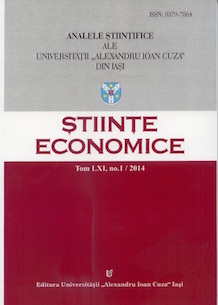The liquidity trap, democracy and central bank independence
The liquidity trap, democracy and central bank independence
Author(s): Lucian CroitoruSubject(s): Business Economy / Management, Government/Political systems, Fiscal Politics / Budgeting
Published by: Editura Universităţii »Alexandru Ioan Cuza« din Iaşi
Keywords: central bank; liquidity trap; quasi-fiscal operations; operational independence; quantitative easing; democracy;
Summary/Abstract: In the wake of the financial crisis, central banks in developed countries performed unconventional operations that are fiscal in nature. On one hand, we support the view that such operations, which are not fully democratic, might lead to loss of central bank operational independence and discuss some difficulties that central banks might face when reversing quantitative easing. On the other hand, we show that, in the middle of a financial crisis, such operations are best performed by central banks. To avoid this potential conflict, the society needs to identify the best means by which the responsibility for quasi-fiscal operations implemented by the central bank is transferred to a democratic structure.
Journal: Analele Ştiinţifice ale Universităţii »Alexandru Ioan Cuza« din Iaşi. Ştiinţe economice
- Issue Year: 61/2014
- Issue No: 1
- Page Range: 17-30
- Page Count: 14
- Language: English

